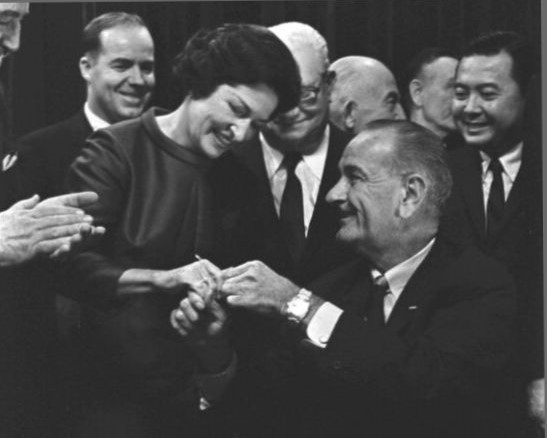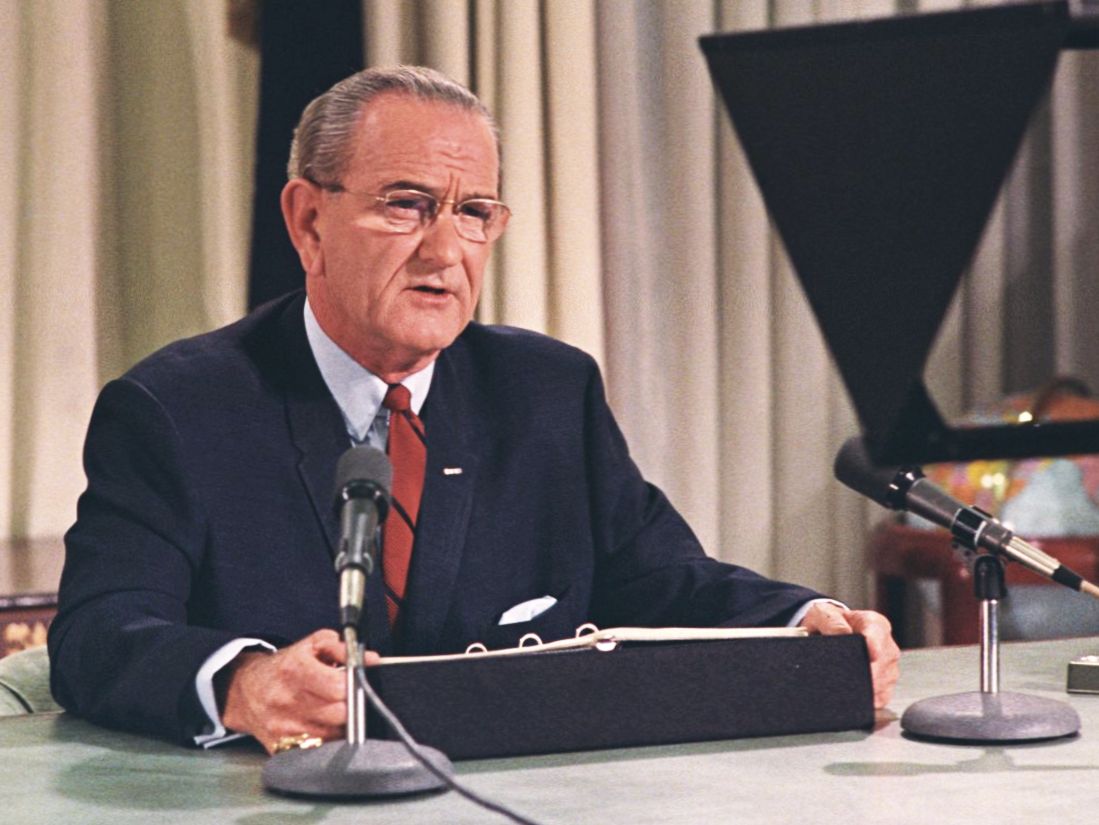Authors:
Historic Era: Era 10: Contemporary United States (1968 to the present)
Historic Theme:
Subject:
Summer 2024 | Volume 69, Issue 3


Authors:
Historic Era: Era 10: Contemporary United States (1968 to the present)
Historic Theme:
Subject:
Summer 2024 | Volume 69, Issue 3
Editor’s Note: Too often, historians have underestimated the role that Lady Bird played in Lyndon Johnson’s political life. An important new biography paints a different picture: that this politically astute woman was intimately involved in advising her husband on political strategy and the evolution of his career. Julia Sweig is the author of the highly acclaimed New York Times bestseller, Lady Bird Johnson: Hiding in Plain Sight, from which portions of this essay were adapted.

Lyndon Johnson’s televised address from the Oval Office on March 31, 1968 was billed as a major statement on the war in Vietnam. After speaking for 39 minutes about his efforts to achieve peace in Southeast Asia, as well as taxes and the economy, the president made a dramatic and unexpected announcement: “I shall not seek, and I will not accept, the nomination of my party for another term as your president.”
LBJ’s decision to drop out of the 1968 race shocked his own White House, the national press corps, his many political adversaries of both parties, and Americans across the country. Only a few staffers, whom LBJ and wife Lady Bird had sworn to secrecy to help them craft his statement, knew of his plan in advance.
Very quickly, the explanations for Johnson’s decision congealed around the most apparent factors that, by March 1968, had so severely weakened his presidency: the Vietnam War, where the bombing and body bags coming home had riven the nation and thwarted LBJ’s ambitions for domestic renewal; Eugene McCarthy, whose loss by just eight points to the sitting president earlier that month in the New Hampshire primary had nevertheless signaled a precarious path to the nomination for Johnson; and Bobby Kennedy, whose entrance into the race a few days after McCarthy’s strong showing had, in any case, been anticipated by the Johnsons for years.
The many books and articles about the Johnson presidency largely repeat these explanations. Yet, what most historians and journalists miss in writing about Lyndon Johnson and, in this instance, his decision to stand for only one term, is the weight of Lady Bird’s influence within their marriage and on LBJ’s presidency, and the fact that, four years earlier, she had specifically pointed out that not running for a second term could be a sensible strategy.
In the spring of 1964, when LBJ was nearing the end of the presidential term he had assumed after the death of John F. Kennedy, he and Lady Bird deliberated whether should he run for president on his own, and if the risks to his health were too great. Nine years before, LBJ had suffered a near-fatal heart